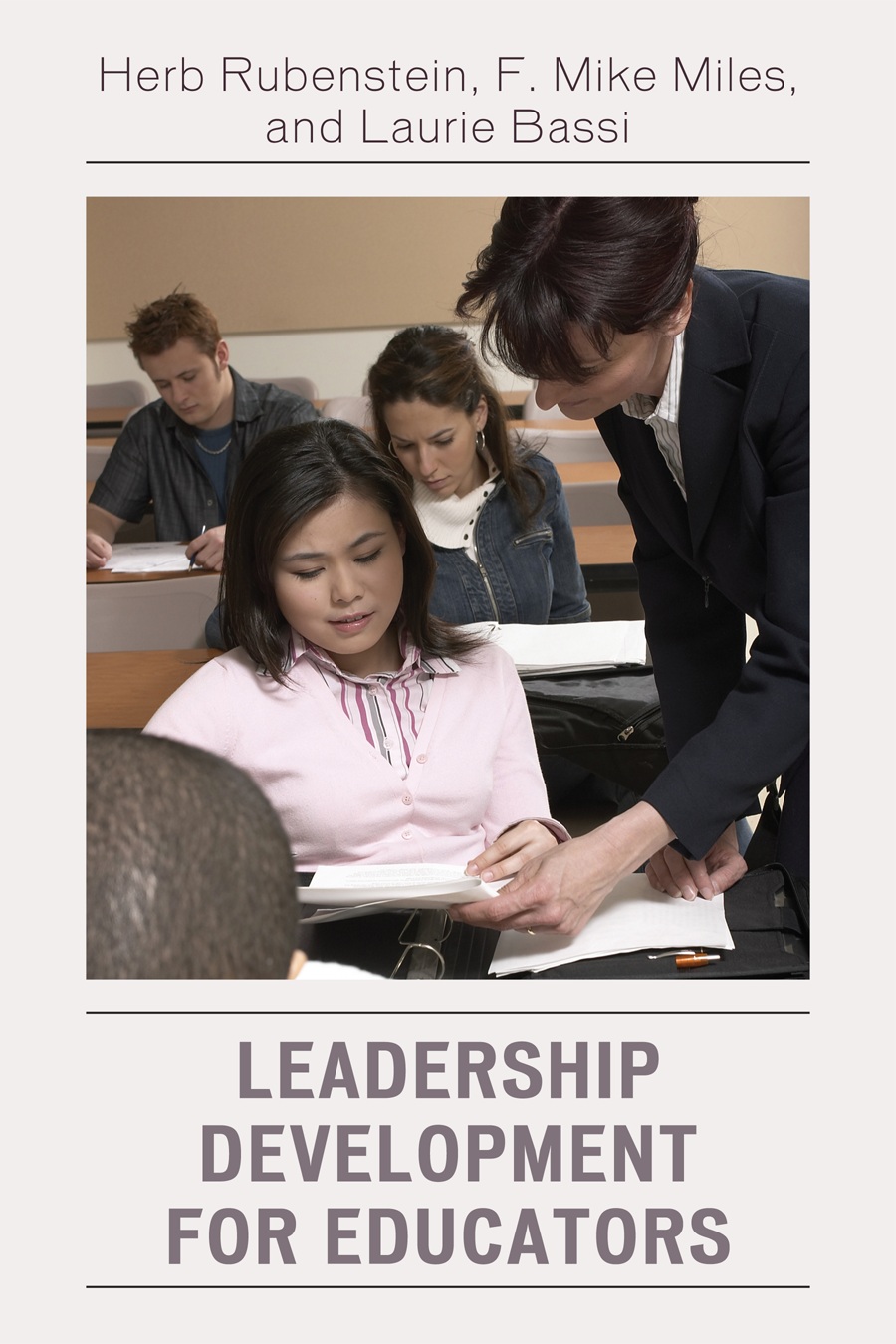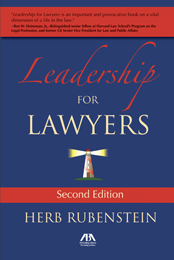Leadership
THE LEEEGH’S OFFERINGS IN LEADERSHIP DEVELOPMENT
THE LEEEGH offers customized leadership training to individuals and to entire organizations seeking to improve their performance. Based on our two books already published in the leadership field, Leadership Development for Educators (Rowman and Littlefield, December, 2009, US Publication; Overleaf Publishing, March, 2010, India Publication) and Leadership for Lawyers (2nd ed., American Bar Association, 2008), and over 100 articles published in the field of leadership development, THE LEEEGH can assess your leadership needs and can develop a training program to bring out the best in your executives, your board members, and everyone in your organization. Members of THE LEEEGH are accomplished public speakers and we can give keynote addresses, workshops, seminars and lectures (which are always interactive) to your conferences, annual meetings, organization retreats, and other events throughout the year. THE LEEEGH can assist your leadership in “high stakes” negotiations, presentations, merger and acquisition situations, and in creating strategic alliances that will help your organization expand. For more information about the broad range of services that THE LEEEGH provides in the leadership arena, contact Herb Rubenstein at 303.910.7961 or by email at herb@sbizgroup.com
WHAT LEADERS DO: A CHECKLIST
Article by Herb Rubenstein
CEO, Herb Rubenstein Consulting
Introduction
Recently we designed the first systematic evaluation system so that NFL players could evaluate their coaches. Over 30 years ago Jack Wallace and I developed the first computerized evaluation system so that students could evaluate faculty members at a college. We were at Washington and Lee University and today that evaluation system is widely used throughout the United States on hundreds of college campuses.
In order to evaluate a group or an individual, you need to know what are the key elements of that person's job or responsibility. We have compressed the leadership literature into list, in a checklist format. This list describes what leaders do in an organizational context. We understand fully that a critical component of leadership is successful leadership of one's self, although this checklist does not delve into the "lead yourself" aspect of leadership. We hope that you find this checklist useful in rating leaders, in developing leaders and, most importantly, in becoming a more successful leader yourself, starting today.
Checklist 1: People Management:
1.1 Clearly communicates expectations
1.2 Recognizes, acknowledges and rewards achievement
1.3 Inspires others and serves as a catalyst for others to perform in ways they would not undertake without the leader's support and direction
1.4 Puts the right people in the right positions at the right time with the right resources and right job description
1.5 Secures alignment on what is the right direction for the organization
1.6 Persuades/Encourages people in the organization to achieve the desired results for the organization
1.7 Makes sure not to burn out people in the organization, looking out for their well being as well as the well being of the organization
1.8 Identifies weak signals that suggest impending conflict and deals with the sources of conflict effectively
1.9 Holds people accountable
1.10 Encourages the human capital development of every person in the organization and allocates sufficient resources to this endeavor
1.11 Correctly evaluates the actual performance and the potential of each person in the organization
1.12 Encourages people in the organization to stand up for and express their beliefs
1.13 Creates a non-fear based environment where all persons in the organization can speak the truth as he or she sees it without concern for retaliation
1.14 Able to empathize with those he or she leads
Checklist 2: Strategic Management
2.1 Flexible when necessary to adapt to changing circumstances
2.2 Sets, with input from others including all stakeholders, the long term direction for the organization
2.3 Understands the competitive environment, social trends, competitors, customers and all stakeholders
2.4 Correctly analyzes the risks of all decisions
2.5 Correctly analyzes the returns of all decisions
2.6 Has the ability to focus without losing breadth in his or her ability to see at the outer edges gathering worthwhile information that others miss or fail to see as significant
2.7 Understands the strengths and weaknesses of the organization; how to exploit the strengths and address the weaknesses successfully
2.8 Can develop and implement strategies to improve the strengths and to combat the weaknesses of the organization
2.9 Can identify appropriate partners, strategic alliances and outside resources to tap into to help further the organization's goals
2.10 Can articulate the values of the organization and develop strategies consistent with the core values
2.11 Demonstrates a strong commitment to diversity and change, improvement
2.12 Demonstrates a strong commitment to creating and sustaining a learning organization (Learning is the foundation for all sustainable change).
Checklist 3: Personal Characteristics
3.1 Lives with honesty and integrity
3.2 Selects people for his or her team who are honest and have high integrity
3.3 Will, passion and desire to succeed
3.4 Willingness to shoulder the responsibility for success (without being a "thunder taker") and failure (without casting blame)
3.5 Innovative and open to new ideas
3.6 Not willing to accept the ways things are since they can always be improved; never satisfied completely with the status quo
3.7 Smart, intelligent, emotionally strong
3.8 Confident without being arrogant
3.9 Able negotiator
3.10 Willing to be patient
3.11 Decisive when necessary
3.12 Able to think analytically
3.13 Quick learner
3.14 Respectful to all
3.15 Perceptive and sensitive to the needs of others
3.16 Diligent, disciplined and has strong perseverance capabilities
3.17 Comfortable with ambiguity
3.18 Willing to be original
3.19 Informed risk taker
Checklist 4: Process Management
4.1 Able to manage change
4.2 Promotes innovation
4.3 Able to secure resources
4.4 Able to allocate resources
4.5 Great problem solver
4.6 Able to anticipate crises
4.7 Able to handle crisis when it explodes
4.8 Can create and manage budgets
4.9 Can create and manage timelines, work plans
4.10 Great project management skills
4.11 Can translate long term vision into step by step plan
4.12 Able to measure results
4.13 Knows when a process is not working
4.14 Willing to redesign processes as often as necessary
About The Author
Herb Rubenstein is Founder and Executive Director, THE LEEEGH and an attorney and the CEO of Herb Rubenstein Consulting, a leadership and management consulting firm. He is co-author of Breakthrough, Inc. High Growth Strategies for Entrepreneurial Organizations (Prentice Hall/Financial Times, 1999) and author of Leadership for Lawyers (American Bar Association, 2008). He has also served as an Adjunct Professor of Entrepreneurism at George Mason University and Colorado State University, is a founding director of the Association of Professional Futurists, and is the author of numerous articles on futures studies, leadership and strategic planning.
He has his law degree from Georgetown University, his Master of Public Affairs from the LBJ School of Public Affairs, a graduate degree in sociology from the University of Bristol in Bristol, England and was a Phi Beta Kappa/Omicron Delta Kappa graduate from Washington and Lee University in 1974. His email herb@sbizgroup.com and he can be reached at (303) 279-1878. For more information about Herb Rubenstein Consulting, see www.herbrubenstein.com.




